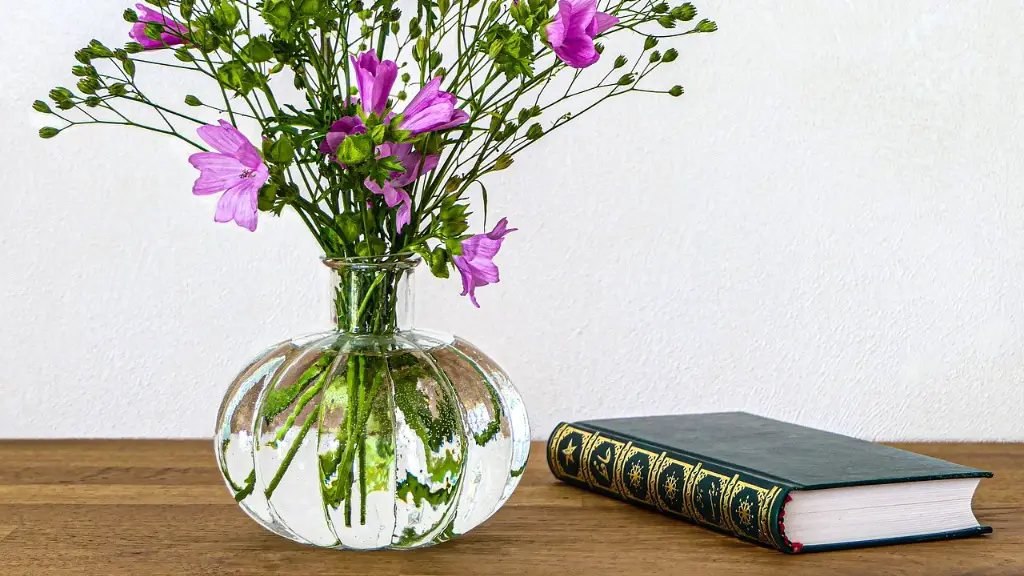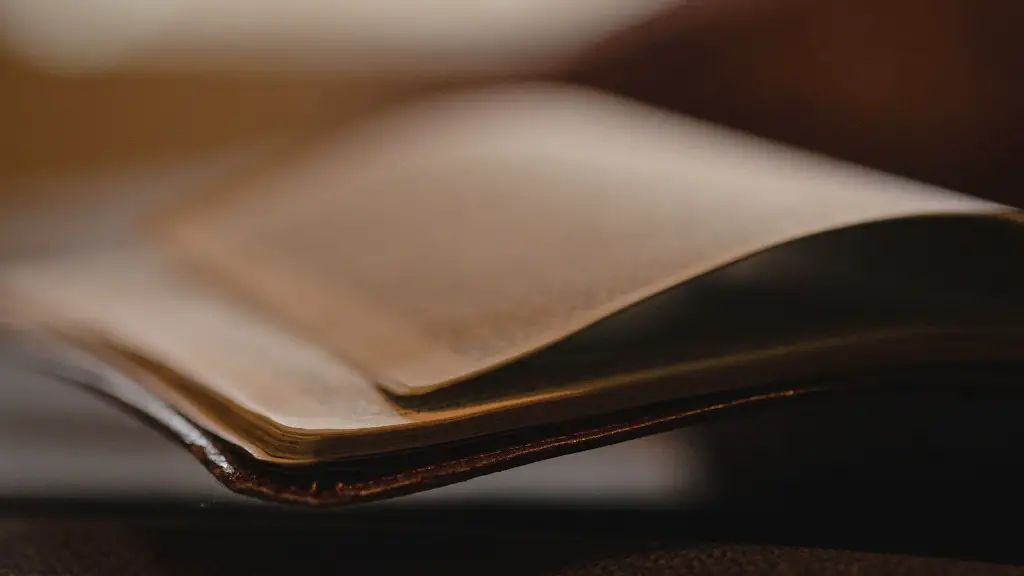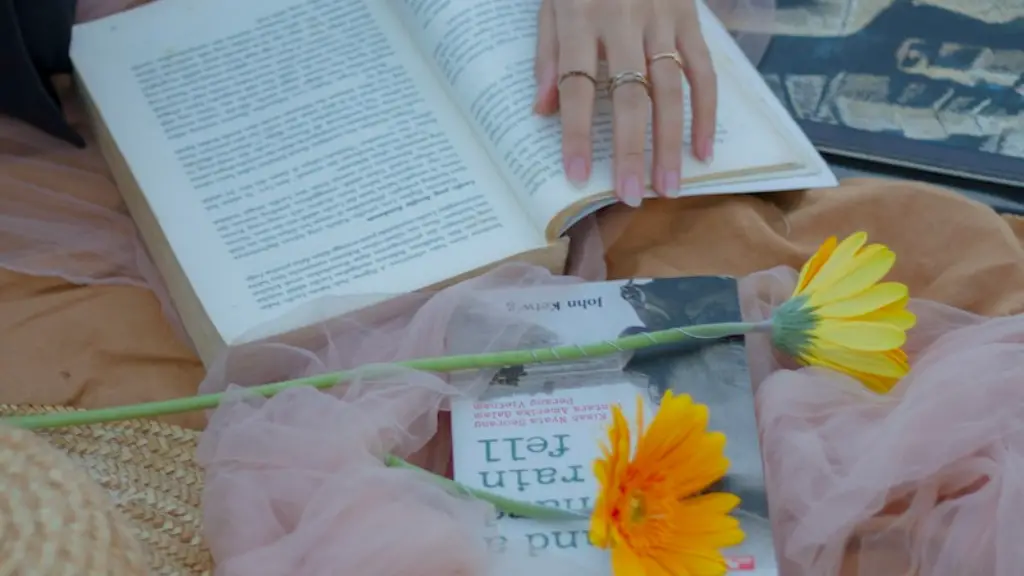Definition of Poetry
Poetry is an art form that has been around since antiquity, but it still remains relevant and applicable even today. According to Oxford, poetry is “the art of rhythmical composition, written or spoken, for exciting pleasure by beautiful, imaginative, or elevated thoughts.” Poetry is composed of words that have the power to evoke strong emotions and thoughts from the reader. It can be used to express how one feels, to explore an idea or concept, or to tell a story. A poem can be whimsical or somber and can help a person to think more deeply about their experiences and feelings. Poetry has a number of uses and is often seen as an underappreciated medium for communication, even in today’s digital age.
Uses of Poetry
The uses of poetry are varied and numerous. On an emotional level, it can express a range of feelings, from joy to sorrow. It can also be used to illustrate ideas and concepts, to explore themes of power, identity and representation. Poetry can also be used to create artwork. Poets often use words in highly creative and imaginative ways, using metaphor and simile to describe a scene or situation. Finally, poetry can be used to tell stories and can even be used to create entire fictional universes.
For many people, one of the main uses of poetry is to express emotions. Words have a unique power to evoke strong emotions and to bring up memories, and poets have been using this power for centuries. Poetic expressions of emotions can help to give words to feelings that may be difficult to put into words. It can also serve as a form of self-expression for those who may not necessarily feel as though they are able to express themselves in traditional ways.
Poetry can also be used to explore ideas and concepts, particularly those related to power, identity and representation. Poets often write about current political and social issues and use their words to provide perspectives and insights on these issues. Poetry can be used to provide commentary on the world in which we live, as well as to introduce new perspectives on topics that may be overlooked or underrepresented in mainstream discourse.
Finally, poetry can be used to create artwork. Poets often use words in highly creative and imaginative ways, using metaphor and simile to create vivid and powerful images. Artistic use of language in poetry can create a beautiful and persuasive form of communication, often conveying messages and ideas in a way that traditional forms of communication fail to do.
Types of Poetry
Poetry comes in many different forms and styles. While some forms are more traditional and structured, such as sonnets or haikus, others are more free-form, such as free verse or spoken word. Traditional forms often use specific rhyme and meter schemes, while free-form poetry typically does not. Poetic forms often vary from culture to culture, and poets often draw upon different styles and techniques to create their work.
Sonnets, for example, are highly structured forms of poetry that consist of fourteen lines of iambic pentameter and a particular rhyme pattern. They are typically used to express love or other strong emotions. Lyric poems, on the other hand, are shorter pieces of poetry, often written in the form of a song or poem. They typically focus on expressing intangible concepts like love or sadness. Free verse, on the other hand, is a style of poetry that is more open in its form and structure.
History of Poetry
Poetry has a long and rich history, stretching back hundreds of years. Some of the earliest known forms of poetry were written in ancient forms such as Sumerian and Babylonian, as well as in the Epic of Gilgamesh. Poetry was an integral part of ancient cultures, and was often used as a form of storytelling or to convey religious beliefs and worldviews. In the modern day, poetry continues to be an important form of expression and communication.
During the Renaissance, poetry became a popular form of expression among writers and poets. Writers such as William Shakespeare, Edmund Spenser, and Ben Jonson all wrote poetry that was highly influential and which helped to shape the development of the art form. In the eighteenth century, Romantic poets such as William Wordsworth, John Keats, and Lord Byron wrote works that examined the power of emotion and nature.
In the twentieth century, poetry underwent yet another transformation, becoming increasingly focused on depicting everyday life and exploring the power of art. Poets such as T.S. Eliot, Ezra Pound, and W.B Yeats wrote works that were highly influential and shaped the poetic landscape of the time. Today, poetry continues to be an important form of expression, with contemporary poets exploring a wide range of topics and issues.
Value of Poetry
Poetry is an often underappreciated medium for communication and expression. It is a powerful way to express emotions and explore ideas in a unique way. It can be used to tell stories, express sorrow and joy, and to create imaginative imagery. Poetry has the potential to touch the hearts of its readers and to create a connection between people. That is why it has been an enduring art form and will continue to remain one in the years to come.
Relevance of Poetry in Today’s World
In today’s digital world, it can be easy to overlook the relevance of poetry. But even in a time when communication is becoming increasingly digitalized, poetry still holds a special place. While the internet can be a useful tool for sharing information, it is poetry that can touch the hearts of its readers and can evoke powerful emotions. This is why it is still relevant and applicable even today and is often used as a form of self-expression by those who may not feel as though they are able to express themselves in traditional ways.
Conclusion
Poetry has many uses, from exploring emotions and ideas to creating artwork. It has a long and rich history and is still relevant and applicable even today. Poetry can be used as a form of self-expression by those who may not feel as though they are able to express themselves in traditional ways. As an art form, it is often underappreciated, but its potential to touch the hearts and minds of its readers can make it an invaluable tool for communication.



